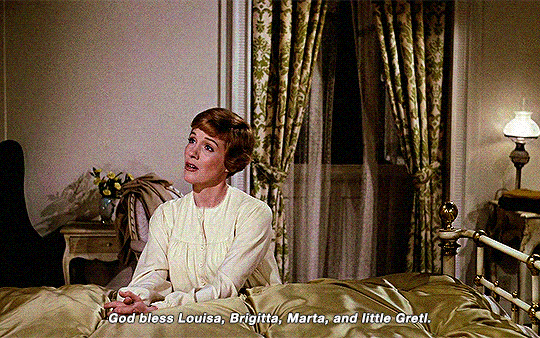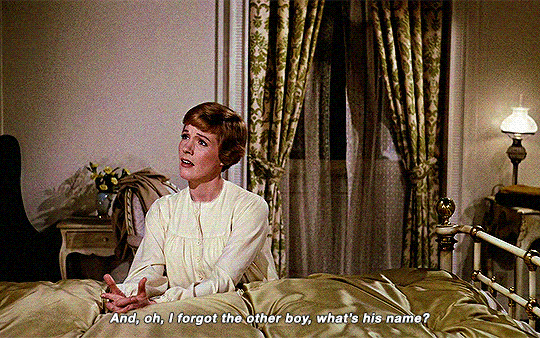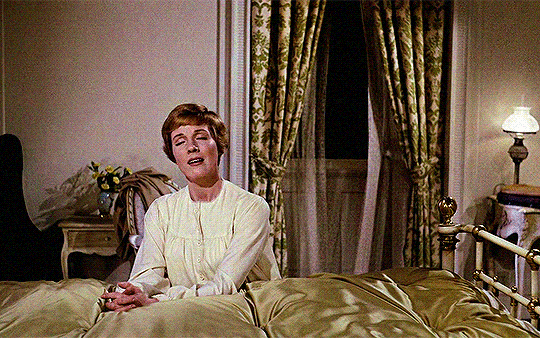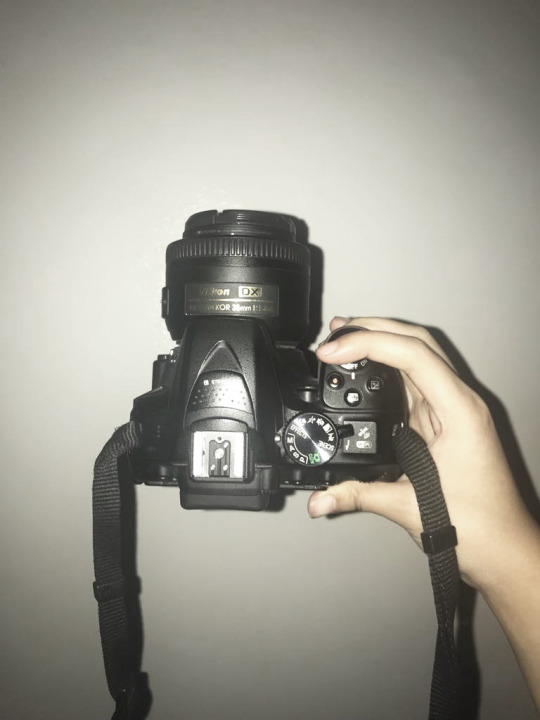#ch: maria von trapp
Photo




Dear Father, now I know why you sent me here: to help these children prepare for a new mother, and I pray that this will become a happy family in Thy sight.
THE SOUND OF MUSIC (1965)
— dir. Robert Wise
#the sound of music#1960s#tsomedit#filmedit#musicaledit#periodedit#moviegif#filmgif#dailyflicks#userbbelcher#usersavana#userdi#usergiles#userlindir#userpavlova#tusersbeth#useradie#ch: maria von trapp#gif#ours#veronica
1K notes
·
View notes
Text
Some thoughts on the Blake Telemovie, etc.
A) nobody has yet posted about the big 1962 sticker on Rose’s VW?
B) but I loved Patrick.... (I mean as a character) - I didn’t see that coming and I was pretty shocked. I almost didn’t want a wedding after that.
C) Patrick’s car was at the slimeball car lot because it broke down, or so he told Blake, when asked why he was walking to the meeting with the “father of the bride” But then later the servant girl (name forgotten) said she was just there to give him an alibi? Confuseled
D) this ep gets my vote for most confusing Dr. Blake plot so far. Good thing I wasn’t really watching for the mystery.
E) but I’m not sure who can be in the upcoming Ch. 7 Dr. Blake series, because it seems like everyone is either dead or moved away to some other town/continent, or having a baby and unavailable, etc.
F) the next movie will be set 3 years later? Whaat? Why? (if Jean has several kids, and has adopted one of Jack’s, and Alice has adopted, too, and Matthew has a dog, etc. I will be so amused - but my hubby probably won’t watch anymore)
G) who takes a 4 month honeymoon? I don’t even think Maria and Captain von Trapp’s honeymoon was that long in The Sound of Music...
H) loved the little tidbits throughout, though - Lucien and Matthew drinking, Cec, the discussion about the studio, Patrick visiting Jean again (wipes away tear)
H) sigh. the wedding. it was great. The reason I watched.
must go to bed now. like I’ll be able to sleep.
14 notes
·
View notes
Text
The Hills are Alive with the Sound of Spiralling Loneliness and Crippling Anxiety
by Cara Rosete
You will never feel any smaller than when standing at the centre of the muddled streets of a new city, such as New York— all by yourself. You can stare at a map all day, find your way to Time Square or the Statue of Liberty, but still end up feeling lost, tiny, and completely out of your element. The daunting roads of Manhattan glare straight into your eyes as you muster enough courage to wave it a timid and forced hello.
Thoughts race around your head of being judged by the locals or being mugged in Central Park. Timetables, train schedules, and hourly traditions that you have yet to adjust to keep you up at night. Your head is bombarded with feelings of isolation and ostracisation. When complete strangers pass you by and ignore you on the streets, you automatically feel as if it’s because you do not belong in their city. This unquenchable homesickness and loneliness eventually lead you to worry and overanalyse every situation.
It’s not that the place isn’t beautiful. Actually, it is more than you could ever ask for! The wind is cool and crisp, carrying the rich and strong fragrant of Starbucks roasted coffee beans. You hear the divine sizzle of New York footlong hotdogs musk the thundering roar of Taxi cars and train tracks. You feel the crooked cobblestone with every tap of your boot. But the decadent taste of New York Pretzels, the alluring gleam of cheap Carnival lights, and the melodious sound of 60s Jazz on Broadway still won’t mask the fact that you, in one of the biggest and brightest cities in the world, are alone.
Similar to what Williams, et al. says, these situations in itself are ambiguous. It is when we think, assign meanings, and overanalyse or interpret, where we start to develop these negative thoughts. This is what leads us down a spiral of depression and anxiety. This in turn affects how we react.
It is quite weird how one may interpret a situation completely different from what it actually was.
For example, you are in a foreign land and the locals are eyeing you as you walk through the busy streets. What may really be happening is that they’re intrigued with people (like you) visiting their own country, and would like to show you some local straight-from-the-heart hospitality. Perhaps giving you their undivided attention as you ice skate along Rockefeller Centre is their way of New York endearment. However, you immediately assume it’s because they discriminate against your foreign nature, and don’t want anything to do with you. This tingling sense of humiliation and timidness overcomes you as you slowly and shyly shroud away from the crowd into a back alley, where no one can see you (and where you can potentially get mugged by some alleyway gang). You then feel this growing pang of what it really is like to be lonesome. You never felt this back at home, and you wish you can return… But the sad reality is: you cant.
But then, somewhat like a gift from the heavens, a box appears suddenly right in front you. You pick it up to open it, and inside you found two items.
One is keepsake of your choice to take with you from home, hopefully to help with your well-being. Additionally, beside it, you have a photo of another item that left behind hopefully to have someone remember you by. You stare deeply at it as urges of nostalgia slowly seep in. What do you see?
If it were my box, I would have a picture of my Sound of Music VHS Tape as a token for my family and friends to remember me by.

This movie has influenced me in so many ways. This is because, when I was young, I would go around and sing all the songs from the movie at the top of my lungs until scolded. I would imitate one of the Von Trapp kids in my own rendition as I sing myself to bed. This movie taught me music. Julie Andrews was the one who inspired me to first sing, which honestly is such a big part now of my life. Maria’s bubbly and carefree personality is something that I have chosen to emulate still till this day, especially when faced with any particular problems. Surely, I cannot sing my way out of it, but she has taught me to grin through the process.
I hope that this token will help my family easily remember me every time they so much as see it on our living room shelf, collecting dust. It is a timeless classic that will surpass even me. I hope it brings feelings of warmth, whimsy, and fun back into the lives of my family even when I’m not there to bring it to them myself.
Next, my keepsake would be the DSLR Camera.

My father bought it for me when I turned thirteen. It is the only thing we ever had in common. Additionally, according again to Williams, et al.,
We only compound our feelings of depletion if we deal with them by giving up activities that normally nourish us, like getting together with friends and family who might be a real support for us. (p. 18)
Hence, those who suffer from high levels of depression, loneliness, or sadness tend to distance themselves from hobbies they use to enjoy doing. Furthermore, because I cannot access any support from my loved ones, my DSLR (filled with old photos from past trips and events) will easily remind me of the times I had with them to, in some way, make me feel as if they are still with me. For the sake of my own well-being, I feel as if engaging in a hobby will distract me from spiralling into this cycle of homesickness, loneliness, and self-hatred. It will keep me motivated and feel loved even, especially in this terrifyingly large and uncharted city.
Well-being, simply put, is defined to be the state of being comfortable, healthy, and happy. It’s especially difficult to achieve proper well being in a foreign area, where anxiety and stress levels are so high. Try imagining that these these negative emotions have somewhat of a domino effect, where one bad thought leads to another (which leads to another, up until you are just an emotional mess on the floor). It is important, especially in a anxiety induced area, to prioritise your well-being amongst other things.
Additionally, I believe my DSLR will help me in protecting my well-being by allowing me to practice mindfulness. When capturing photos, you must always be present in the moment. Williams, et al., says to “[g]et out of your heads and learn to experience the world directly, experientially, without the relentless commentary of our thoughts” (p. 46). To capture the perfect shot, you must have the readiness for any giving opportunity. You should not bombard yourself with overanalysing and overthinking. You have to use all your senses to take in the new environment and encapsulate it into your own photos.
This practice of mindfulness while integrating it with photography forms this amalgamation of peace and composure, perfect to deal with negative thoughts and experiences.
It is okay to feel sad and lonely. It happens to everyone. When feeling down, it is normal to feel irritable and worthless. People, however, have the tendency to interpret situations to be more negative thus bombarding their heads with these loud, pessimistic thoughts.
You have your basic emotions, such as joy, disgust, sadness, fear, and anger, which actually serve practical functions for your own survival. They allow you to respond to certain situations appropriately, and will not go away until that certain stimuli (which triggered them in the first place) is no longer present. So when something sad happens, it is okay to feel down. Eventually, what triggered it will go away over time. The problem lies in how these emotions lead to thoughts of negativity, loneliness, and inadequacy. These are not as easy to get rid of. However, engaging in mindfulness will help clear your head and make you feel not so small and alone in this new, ever-changing environment. This will help you in the development of the self, to not be so critical and cynical.
This uncharted city doesn’t necessarily have to be miles away from home, in some foreign country you have never flown to before. You can relate it to even the smallest events here. An example would be entering into a college after being so used to your previous school.
Everything felt so big, while I felt so little. I felt somewhat alone. I did not have my old support system that I used to count on during high school.
My photography, eventually, opened so many avenues for me and helped me build connections with other people who as well took interest in. It also distracted me from feeling useless and worthless. It also helped me practice to not stray away from the present moment.
The two objects in my box (my DSLR and the VHS tape) both are concretised means of my identity. They show this duality of the self because the VHS represents home. It is what is safe. It is what is sentimental. It is what I know and love. While, my DSLR, on the other hand, represents adventure and challenges. It is a hobby that I constantly challenge myself in so I become better and better. It takes me out of my comfort zone; it is the thrill in my body epitomized in a device.
I'm very thankful because, now, I have fully adjusted to college life, and I rarely get any thoughts of isolation and worthlessness. I can now spend my remaining 2 and a half years in college bettering my self. I can walk through campus with a sound mind and carefree spirit— kinda like Maria von Trapp, just without the singing.
References:
Gross, J.J. (2008). Emotion regulation. In M. Lewis, J.M. Haviland-Jones, and L.F. Barrett (eds.), Handbook of emotions (pp. 497-512). New York: The Guilford Press.
Hermans, H. (2015). Human development in today’s globalizing world: Implications for self and identity. In L. Jensen (Ed.), The Oxford Handbook of Human Development and Culture: An Interdisciplinary Perspective (Ch. 3, pp. 28-42). New York, NY: Oxford University Press.
Mesquita, B., Boiger, M., De Leersnyder, J. (2016). The cultural construction of emotions, Current Opinion in Psychology, 8: Pages 31-36, ISSN 2352-250X, http://dx.doi.org/10.1016/j.copsyc.2015.09.015.
Williams, M., Teasdale, J., Segal, Z., & Kabat-Zinn, J. (2007). Part I: Mind, Body, and Emotion. In The mindful way through depression: Freeing yourself from chronic unhappiness (pp. 11-49). New York: The Guilford Press.
0 notes